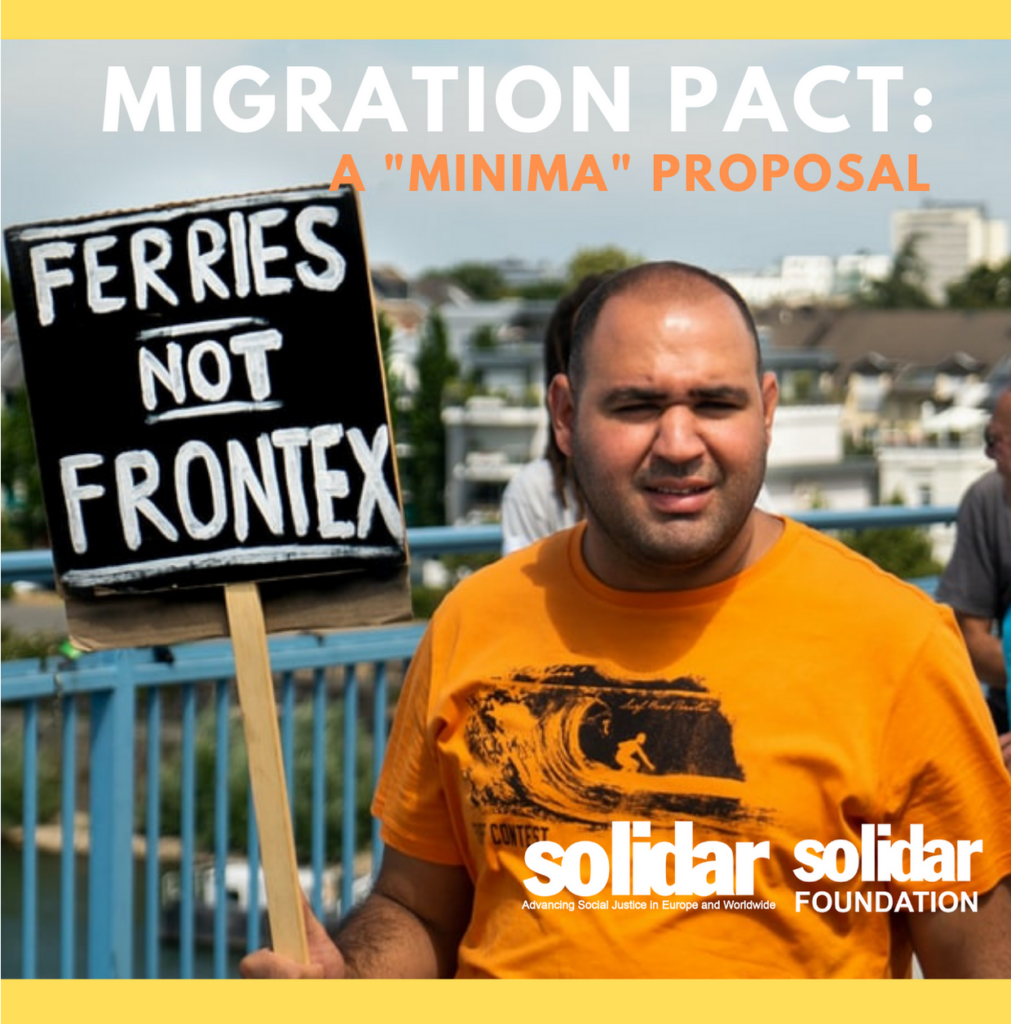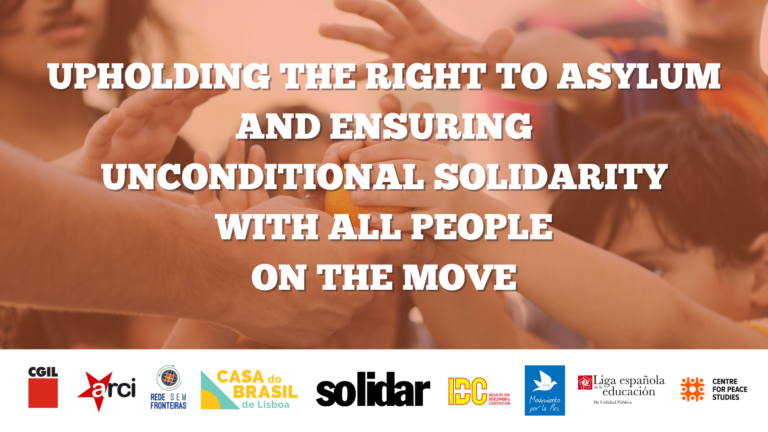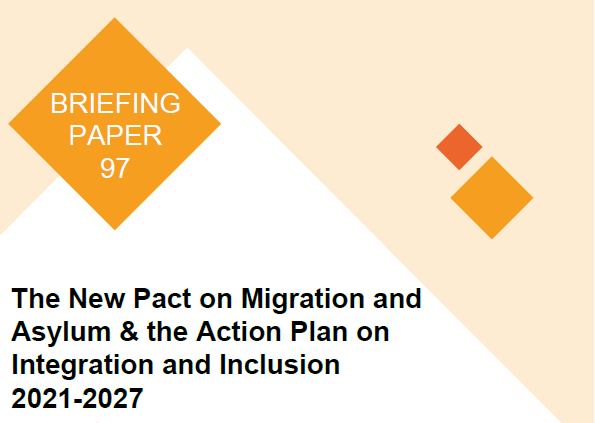SOLIDAR’s take on the New Pact on Migration and Asylum

SOLIDAR, and our member organisations, call for a Pact based on the principles of Human dignity, equality, and solidarity!
The long-awaited proposal for a New Pact on Migration and Asylum was launched on Wednesday September 23rd by the UE Commission president, Ursula Von der Leyen, with the hope of reaching its approval before the end of the year. But the hopes of bold and progressive reforms were nowhere to be seen.
“The Migration and Asylum Pact is essentially more of the same policies with its focus on stronger borders and more returns. Solidarity, humanity and respect for human rights are nowhere to be seen. Moria is burning but the Commission has not learnt the lesson it teaches us”, says Mikael Leyi, Secretary General of Solidar.
SOLIDAR welcomes the launch of the proposal as a basis for a necessary agreement, and the declared ambition to replace the Dublin regulation with a broader instrument for a common framework on migration and asylum. The emphasis on the values of Responsibility and Solidarity are also a positive sign. However, as Mikael Leyi points out: “The current proposal is essentially a watered-down version of what we already have. In its rush to reach a consensus, the new pact has bowed to the postulates of ultra-conservative governments, the most reluctant to reach an agreement on migration issues”. SOLIDAR also deeply regrets the quasi-absence of integration and social inclusion matters, in this firmly securitisation-driven proposal.
The pact presents 3 main lines of action, which advocate for a hard-line policy against irregular migration:
- Reinforcement of EU border control, encouraging the European Border and Coast Guard Agency (Frontex) to become a true border and return police force.
- Streamlining the return policy, increasing the number of deportees based on agreements with neighbouring countries, some of them blatantly violating migrants’ human rights.
- The establishment, as a matter of urgency, of a “new solidarity mechanism” between Member States. However, this mechanism has no mandatory quotas, but is rather based on each State’s choice to either host refugees or implement a “return sponsorship”. Yet again, the burden of managing the arrivals and the first response rests on the shoulders of Southern countries.
In essence, the Commission has released a minima proposal, which fails to adequately address both responsibility and solidarity between Member States, and especially towards the most in need: the migrants, refugees and asylum-seekers themselves. “The proposal is developed with an almost complete disregard for the essential human rights of migrants and will do almost nothing to counter the ongoing human tragedies at sea and in the camps in Europe as well as in third countries”, Mikael Leyi points out.
SOLIDAR calls for a pact based on the principles of Human dignity, equality, and solidarity:
A pact that safeguards the fundamental rights and well-being of people seeking protection. The “hot spots” practice and the subhuman living conditions it leads to should be abolished, not reformed. A humanitarian tragedy has been unfolding in refugees and migrants’ camps for years, and the Moria fire was only the tip of the iceberg. The new mechanism should prevent a new humanitarian disaster such as Moria from ever happening again.
A pact where solidarity remains meaningful. Solidarity toward migrants, ensuring that the right of asylum is respected, but also solidarity among Member States, setting up a real mechanism of distribution and shared responsibility to protect people – rather than distributing the burden of forced returns.
A pact that addresses integration and social and employment inclusion as core parts of migration policies, without distinguishing between those who have the right to stay and those who do not. SOLIDAR will closely follow the upcoming adoption process of the Action Plan on Integration and Inclusion for 2021-2024, and monitor the implementation of the renewed European Partnership for Integration.
A pact where EU development aid is used to tackle the root causes of migration, such as conflicts, climate disasters, and poverty; rather than invest in security forces and border management that makes the migration journey even more dangerous.
A pact on migration that seeks safe and legal pathways, not only facilitates them selectively in a push “to catch up in the global race for talent”: it should recognise the crucial role that all types of migration have in our societies and in our economies. It should aim at organising migrations rather than restricting them.
Europe cannot betray its founding values and play at the rhetoric of noble words, merely to achieve an articifial balance between Member States: “European solidarity must be based on humanity, dignity, and protection towards those who need it, not on reinforcing physical and administrative barriers”, Mikael Leyi concludes.




